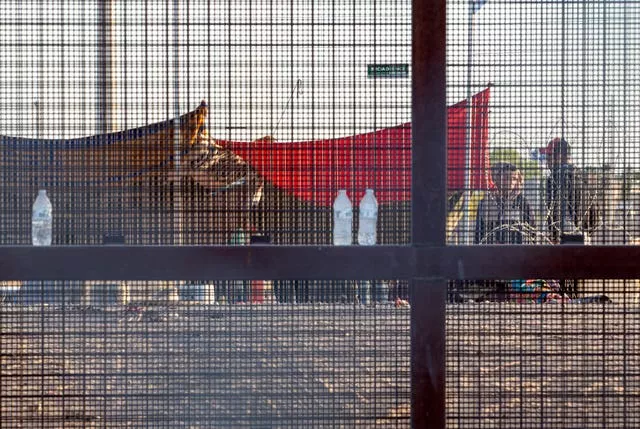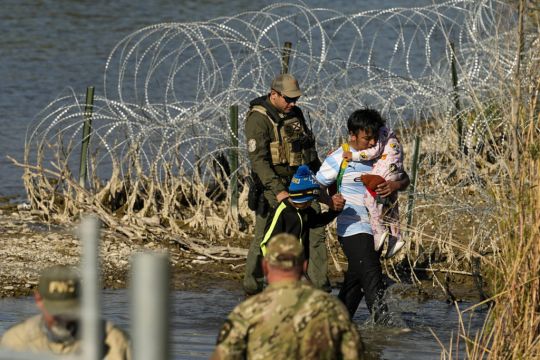Migrant children who wait in makeshift camps along the US-Mexico border for the Border Patrol to process them are in the agency’s custody and are subject to a long-standing court-supervised agreement that set standards for their treatment, a judge ruled.
The issue of when children are officially in Border Patrol custody is particularly important because of the 1997 court settlement on how migrant children in US government custody must be treated.
Those standards include a time limit on how long the children can be held and services such as toilets, sinks and temperature controls.
Wednesday’s ruling means the Department of Homeland Security must quickly process the children and place them in facilities that are “safe and sanitary”.
The border camps have become a flashpoint between immigrant advocates and the federal government.
The US has said smugglers send migrants to the camps and argued that the children are not yet in Border Patrol custody because they have not been arrested.
Advocates say the US government has a responsibility for the children and that Border Patrol often directs migrants to the camps, sometimes even driving them there.
Children travelling alone must be turned over within 72 hours to the US Health and Human Services Department.

That agency generally releases them to family in the United States while an immigration judge considers asylum.
Asylum-seeking families are typically released in the US while their cases wind through courts.
“This is a tremendous victory for children at open air detention sites, but it remains a tragedy that a court had to direct the government to do what basic human decency and the law clearly require,” Neha Desai, senior director of immigration at the National Centre for Youth Law, said in a statement.
“We expect CBP to comply with the court’s order swiftly, and we remain committed to holding CBP accountable for meeting the most rudimentary needs of children in their legal custody, including food, shelter, and basic medical care.”
The Department of Homeland Security did not immediately respond to a request for comment.
US District Judge Dolly Gee’s decision could have far-reaching implications because of the changing face of who is coming to the United States.
Decades ago, the typical person attempting to enter the US was an adult male from Mexico seeking work.
Now, families with children are increasingly making perilous journeys to the border seeking a new life.
Caring for children puts different stresses on federal agencies more historically more geared toward adults.
The legal challenge focuses on two areas in California: one between two border fences in San Diego and another in a remote mountainous region east of San Diego.
Migrants who cross the border illegally wait under open skies or sometimes in tents or structures made of tree branches while short on food and water.
When the number of migrants was particularly high last year, they waited for several days for Border Patrol agents to arrest and process them.
Gee said there was “significant evidence” that Customs and Border Protection, of which Border Patrol is a part, has physical control over minors at the outdoor locations.
For example, CBP vehicles occasionally transport or drop off migrants to the camps and for a time, gave out wristbands to organise migrants by when they had arrived.
The Justice Department said during a March 29th hearing that any agent who sends, or even escorts, migrants to the camps is “no different than any law enforcement officer directing heightened traffic to avoid disorder and disarray”.
The judge ruled that the Customs and Border Protection’s juvenile coordinator must maintain records on minors held in the agency’s custody for more than 72 hours and that includes any time the minors spend in the camps.
The agency must make sure that the treatment of minors at open-air sites complies with the 1997 agreement, Ms Gee wrote.
Ms Gee set a May 10 deadline for the juvenile coordinator to file an interim report about the number of minors held in open-air sites and how the agency was complying with the judge’s order.







